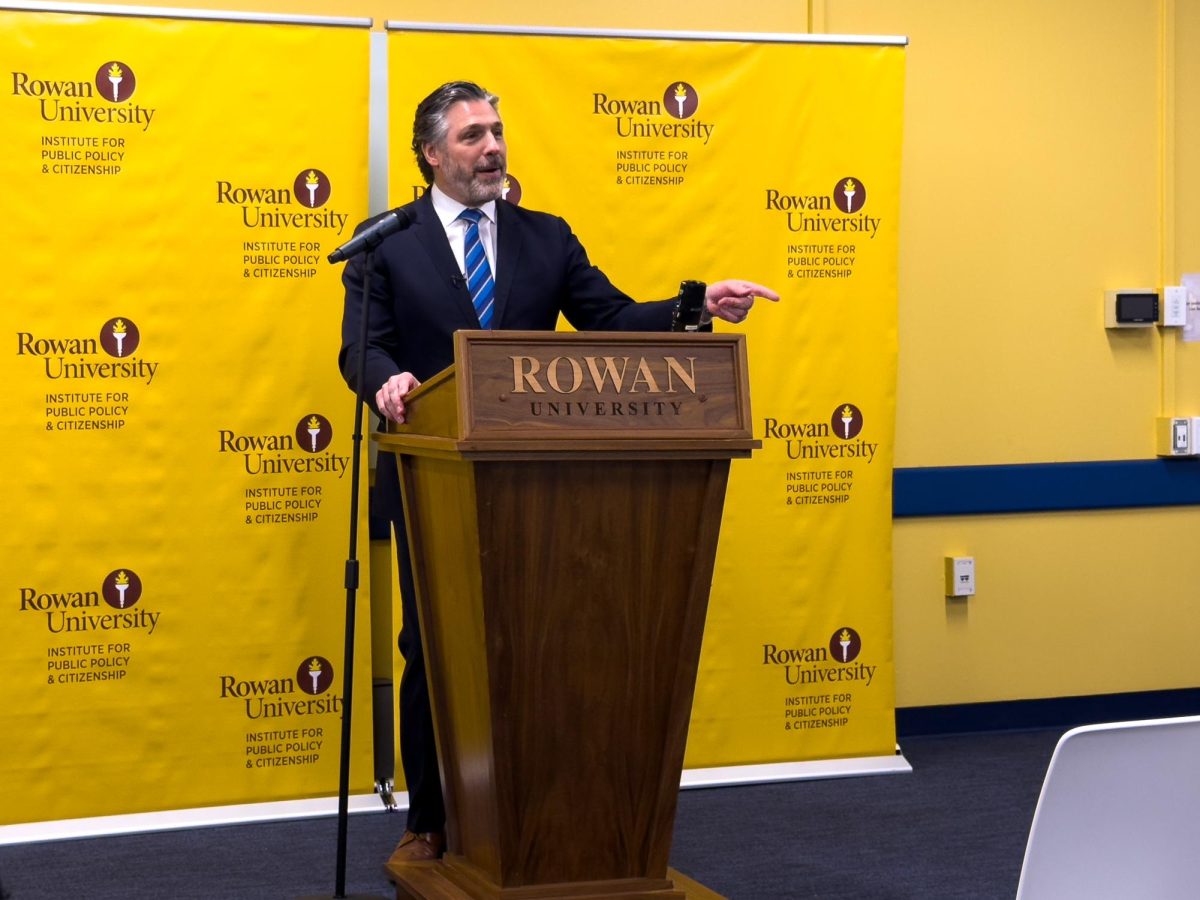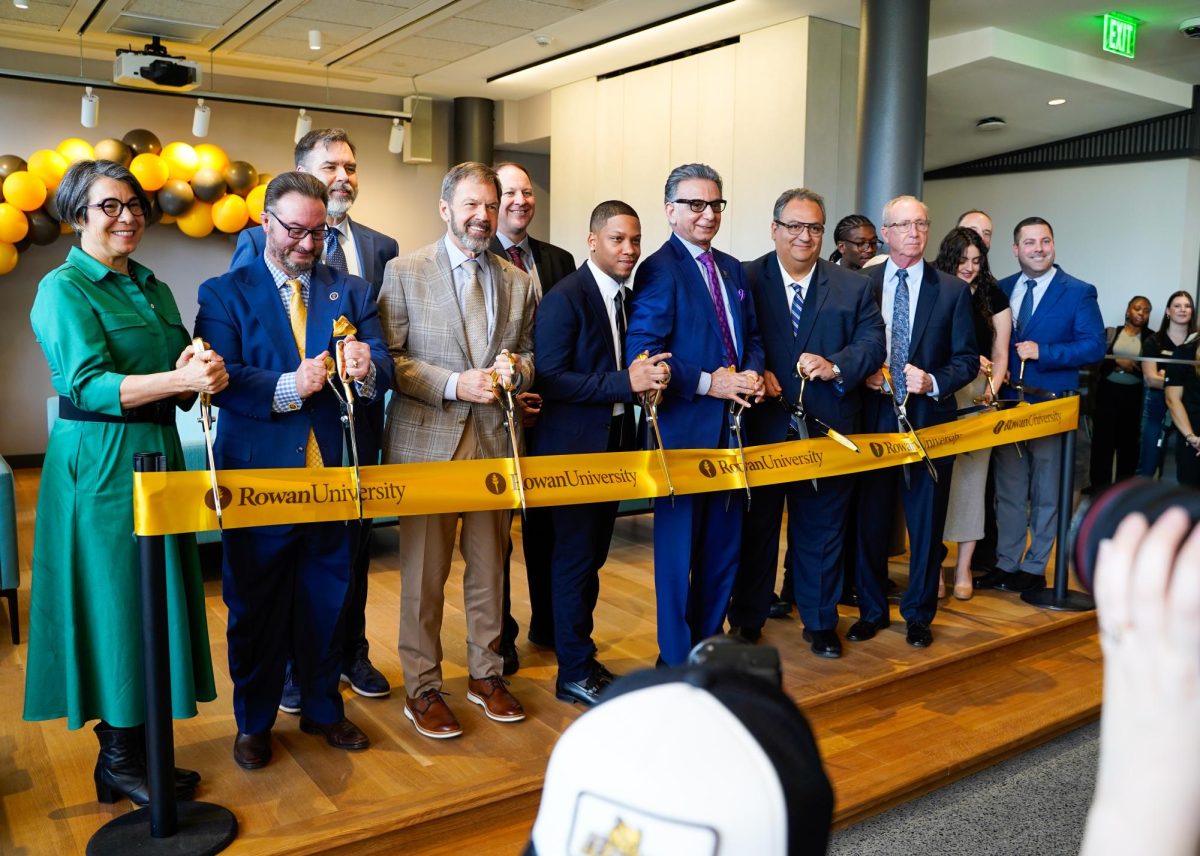Rowan University announced on April 9 that eight international students had their U.S. study visas revoked. The move is part of a nationwide trend under the Trump Administration’s immigration crackdown.
The announcement was made at University Assembled, a biannual event for the Rowan community where President Ali A. Houshmand and senior leadership provide updates on academic programs, research initiatives, enrollment trends and more.
Rowan currently has approximately 1,270 international students enrolled. The president himself, a former international student, addressed the Rowan community with an emotional statement at University Assembled, emphasizing the human toll of the visa revocations happening nationally.
“As an international student myself when I came to this great country, it breaks my heart to see any one of these [students] getting sent back to their country, because it’s almost like a death sentence to them,” said Houshmand. “All we can do is assure them that we are here, to the extent that we can, to help keep them safe. They come to get a good education and to change their lives.”
Houshmand also made it clear to the community that Rowan is not involved in or even aware of the United States Immigration and Customs Enforcement (ICE) actions on campus and does not share sensitive information such as students’ names with immigration authorities.
“Let me tell you, these things are happening—on campuses. They come and take these students away, and we often don’t know why,” said Houshmand. “As a U.S. citizen now, let me tell you, I’m scared. My wife is scared. We’ve been citizens for 30 years and have not seen anything like this. But I want you to know that I feel it. I sense it. And everyone in this room values these students and wants to protect them—though some of it is beyond our control,” said Houshmand.
This comes weeks after international students were warned that their visa status could be at risk under the federal government’s “Catch and Revoke” initiative, which has already led to deportations and visa cancellations for non-citizens on the national scale engaging in online political speech, activism or interactions with groups deemed controversial by the government.
In an email sent out on March 10, Rowan’s International Center warned students about their digital footprint, including their social media posts, petitions they sign, and even online discussions, could be scrutinized by immigration authorities. The email advised students to be mindful of the potential risks and urged them to seek guidance before engaging in activities that could have unintended immigration consequences.
The warning came following reports of international students and faculty at other institutions facing sudden visa cancellations. Rumeysa Ozturk, 30, a Turkish national and doctoral student from Tufts University had just left her Somerville home on Monday, March 25, when six masked individuals from ICE detained and swept her off the streets in handcuffs.
Similarly, a week prior at Brown University, a 34-year-old professor named Dr. Rasha Alawieh was deported back to her home in Lebanon after just returning to the United States from a visit to her family back home. Meanwhile, Mahmoud Khalil, a grad student at Columbia University, had his student visa revoked for engaging in pro-Palestinian protests on campus the prior year.
“First of all, everybody has their own opinions on what’s going on and about the protests? I feel like you know we can be allowed to do this,” said Usha Dahal, 18-year-old, international student studying biological science from Nepal at Rowan University. “I felt so bad when I saw that email, I honestly was like why? Because If you want to do it [protesting] then let’s do it, why not?”
The associate provost for Rowan University’s International Education, Gokhan Alkanat, Ph.D, emphasized that unlike other institutions, Rowan is not restricting free speech but wants students to understand the potential risks.
“We do not want to tell students what to say or what not to say. We simply want them to be aware of the policies in place so they can make informed decisions,” said Alkanat.
Rowan’s International Center, located in Hawthorn Hall, is serving as a primary resource for the international students. The center seeks to offer clear guidance on visa compliance and legal protections for students. While no Rowan students have been impacted so far, Alkanat reassured them that the university’s role is to educate, not enforce.
“We are not the police, we are international educators. Our goal is to help students without unnecessary fear or confusion. Students with questions or concerns are encouraged to reach out to Rowan’s International Center for continued guidance and support,” said Alkanat.
Bill Freind, Ph.D, president of Rowan University’s Faculty Senate, expressed deep concern over the impact that visa revocations could have on the university’s diversity, reputation, and ability to attract top global talent.
“International students and international faculty are really a crucial part of American higher education, and this policy will make America poorer, dumber, and weaker,” said Freind. “Our international students are really scared…and I think it’s important that every university asks them how they’re doing and what we can do to make their lives less stressful.”
While the number of impact students at Rowan is currently small, Friend warned that fear of imprisonment or deportation could eventually lead to a dramatic decline in the enrollment of international students. Not just at Rowan, but nationwide. He noted that faculty members are angry over the lack of rationale behind the cancellations, especially given the sacrifices many students and their families have made to pursue an education in the U.S.
“The American dream is being yanked out from under them for no good reason,” said Freind. He confirmed that Rowan’s faculty leaders are in regular contact with other university officials and are working through the college’s strategic vision committee to assess ongoing challenges. Freind also notes that some students learned of their visa revocations only after noticing a change in their status with the Student and Exchange Visitor Information System (SEVIS), meaning they received no formal warning before potentially becoming targets for ICE enforcement.
Rowan Vice President for University Relations, Jose Cardona emphasized the university’s support for affected students and the institution’s commitment to maintaining an inclusive campus community.
“Rowan University deeply empathizes with the challenges faced by international students regarding visa and I-20 status issues. We remain steadfast in our commitment to providing them meaningful support during this difficult time in their lives,” said Cardona.
For comments/questions about this story DM us on Instagram @thewhitatrowan or email [email protected]























































































































































!["Working with [Dr. Lynch] is always a learning experience for me. She is a treasure,” said Thomas. - Staff Writer / Kacie Scibilia](https://thewhitonline.com/wp-content/uploads/2025/04/choir-1-1200x694.jpg)














































